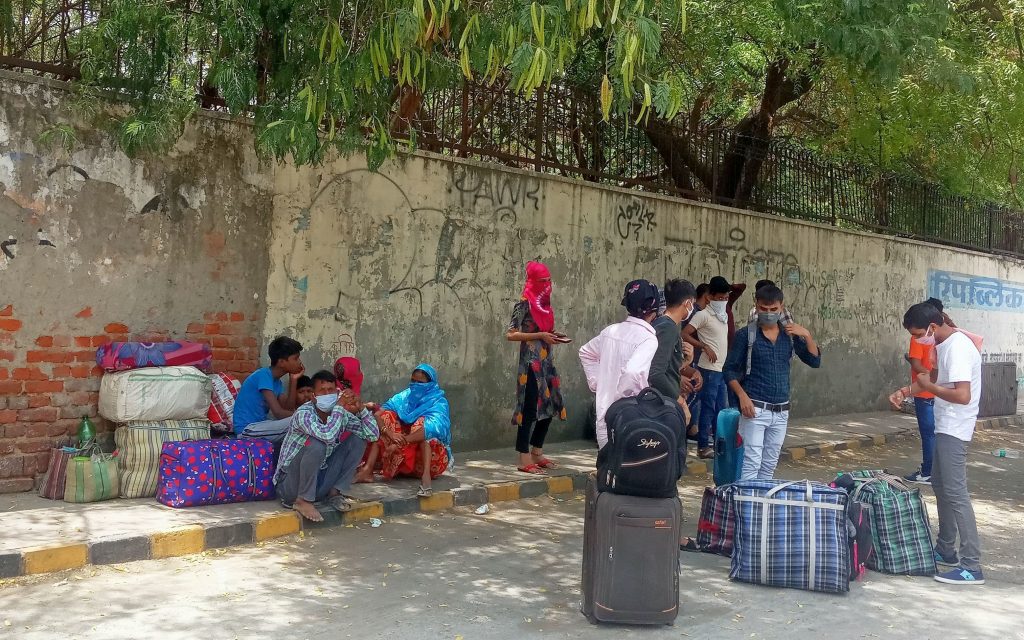India’s inter-state migrant workers often face serious problems, but their issues are not taken seriously. These workers leave their home states, like Uttar Pradesh and Bihar, to find jobs in places such as Punjab. However, when a crisis occurs, such as the recent India-Pakistan tension or natural disasters linked to climate change, they are often the first to suffer.
In May this year, during a tense situation between India and Pakistan, many workers in Ludhiana started going back to their villages. People were scared because of drone attacks, missiles, and blackout orders. Social media posts showed that many workers were leaving Punjab’s factories. They feared for their safety and worried about losing their jobs, remembering how hard life was during the COVID-19 pandemic.
But this sudden move worried factory owners in Punjab. They feared their businesses would shut down due to labour shortages. Online debates followed. Some people accused the workers of being ungrateful and running away, while others supported them and said they were right to leave such a dangerous place.
This situation shows how poorly migrant workers are treated in India. They are often seen as replaceable and not given proper rights or protection. Even the Inter-State Migrant Workmen Act of 1979 is very old and doesn’t help workers during emergencies like war, natural disasters, or pandemics. The law doesn’t say how to help workers return home safely, what support they should get during a crisis, or what responsibilities their employers have.
During COVID-19, many workers and their families had no help from the government because they were undocumented. Women and children suffered the most. A 2020 report by the International Labour Organization (ILO) said migrant workers in India face serious issues like poor social protection, forced labour, gender discrimination, and being stuck in poverty for generations.
Even after this report, not much has changed. The government created the Occupational Safety, Health and Working Conditions (OSH) Code in 2020 to improve things. It included a helpline, registration of workers in new states, and made ration cards usable in other regions. But this law is still not helping because states haven’t fully set up the rules. Many unions and businesses are also against it.
Why are India’s migrant workers still suffering during crisis times?
Because most laws to protect them are either too old or not enforced. Also, since many workers do not vote in the states where they work, politicians often ignore them. Employers also see them as tools, not people with rights.
The latest India-Pakistan crisis made it clear that workers are treated like “disposable labour.” Business owners care about losing profits but don’t worry about the workers’ safety. The government also shows no urgency in protecting them.
This is not just a labour issue. It is a human rights issue. India must stop seeing migrant workers as just hands for cheap labour. It’s time to treat them with respect, protect them with strong laws, and give them the help they need during any crisis.

